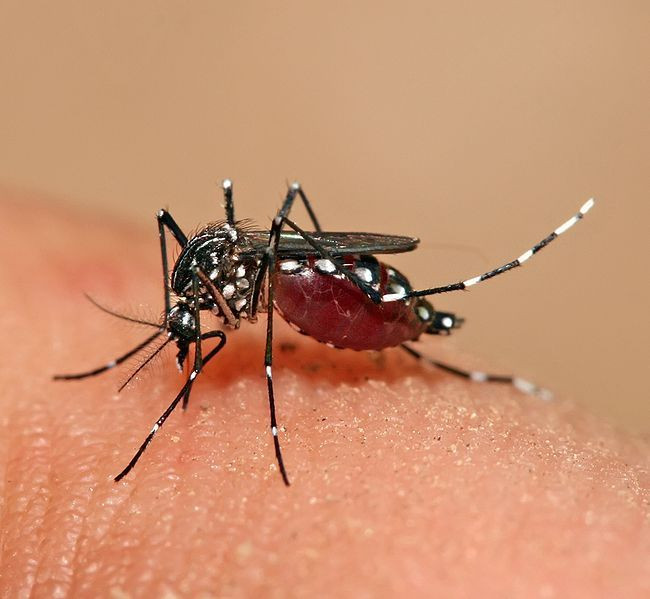Asian Tiger Mosquitos Invade New Jersey: After Cicada Brood, Garden State Expects New Buzz

After a six-week cicada buzz of biblical proportions, New Jersey could soon see another invasion: the Asian tiger mosquito. While the sluggish Brood II population left little more than ringing ears and wrecked backyards in its wake, its aggressive successor is set to do some serious damage.
The Record reports that the insect differs from common mosquito in several different ways. In general, it’s all bad news: the Asian tiger mosquito is much more alert, aggressive, and annoying. The defining feature is its obnoxious ability to hunt all day long. Where common varieties — such as the ubiquitous Vexan mosquito — are characterized by their nocturnal and crepuscular habits, the Asian tiger mosquito has no qualms about settling down on your skin for a meal at any given time.
"This is an extremely obnoxious nuisance mosquito. It is impossible to control without concerted efforts by homeowners in eliminating the breeding habitat," Claudia O'Malley, a biologist for the New Jersey mosquito control division, told The Record.
The Asian tiger mosquito, scientifically known as Aedes albopictus, was first spotted in Monmouth County, N.J. in 1995. Now, public officials have identified adaptive developments within the population — a sign that the mosquito, unlike the cicada, is here to stay.
Its indiscriminate appetite and habits make the mosquito much more likely to spread serious viral infections and diseases among humans and animals. In the northeastern climate, likely threats include equine encephalitis in horses and West Nile virus in humans.
However, is still possible to combat the imminent invasion. Through a state-wide concerted effort, residents and public officials may be able to stunt the growth of the blood-sucking population by depriving the insect of breeding environments. Yet this is no small task, considering that virtually any kind of stagnant freshwater source is a potential nursery for countless mosquito larvae.
"The thing is, if homeowners would only clean up their property we would not even have an albopictus problem,” Pete Rendine, the Bergen County chief inspector, told The Report. “Even a discarded bottle cap holds enough water to allow Asian tiger mosquito eggs to hatch into larvae, and a neglected kiddie pool or clogged gutter can turn into a breeding ground and bring misery to an entire neighborhood.”
Outside the freshwater environment, the mosquito larvae die instantly.
Redine offered two solutions for people with backyard pools: maintain water circulation by outfitting it with an aerator, or shut down the Aedes albopictus’s local growth entirely by bringing in a band of gambusia afinis — a two-inch “mosquitofish,” to whom larvae are irresistible. Otherwise, your yard could become the source of the next neighborhood swarm.
Published by Medicaldaily.com



























